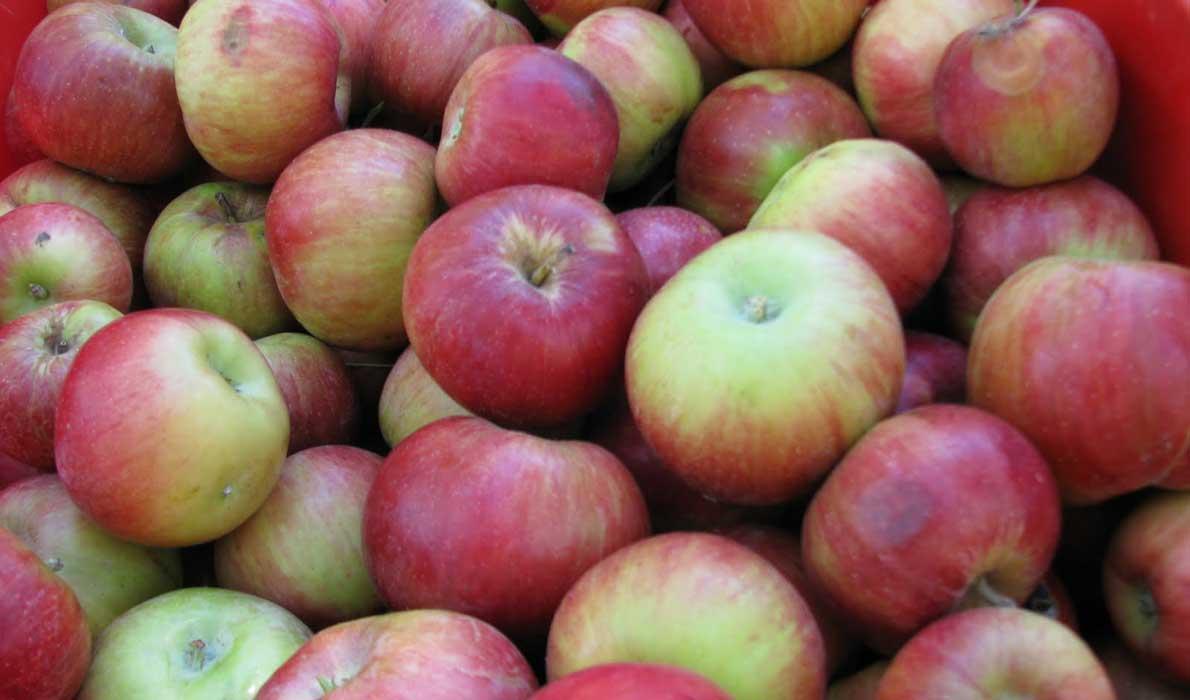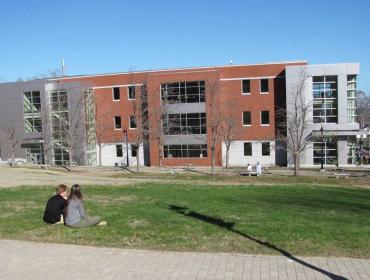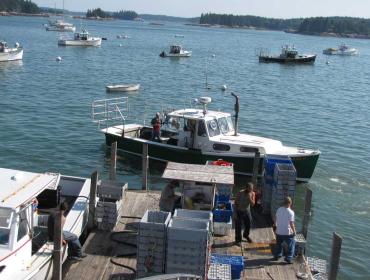Posted November 21, 2016
Last modified November 21, 2016
If you grew up drinking the kind of cider now most widely available, then you are in blessed ignorance of what cider can be. The rest of us nurse fond memories, or make our own.
A few years ago, with the threat of e-coli infesting our favorite fall beverage, the powers that be required that cider be pasteurized; in other words, cooked, which meant that it stopped tasting or acting like cider.
Apparently, there are now methods like ultraviolet irradiation that can knock off pathogens and have less impact on cider’s lively flavor, but my neighbors and I prefer to live a little dangerously, and so eight gallons of the genuine article are in the freezer and a ninth is in the wood room, working itself up to a fizz.
My neighbors Nancy and Terry across the road, my young friends Dylan and Kate, and I and put in a couple of charming days, visiting old favorite apple trees and picking up any drops that the deer deigned to leave us—which wasn’t many—shaking down a few more and filling old spackle buckets, wash tubs, crates and bags with a glorious mix of different sorts.
Tree owners are often happy to trade cider for the privilege of picking apples; others, some who amazingly never harvest their apples, don’t care.
We always forget just how much cider can be squeezed out of a bucket of apples and astonish ourselves with the quantity we produce, ransacking our houses for extra empty milk cartons or juice bottles. I even resort to filling one-gallon, carefully-zip-closed plastic bags and freezing them flat, a trick learned from Nancy and Terry. Dylan acquired two, five-gallon carboys and is aiming for hard cider, a staple in earlier days, and one that seems to be enjoying a revival.
The cider press belongs to yet other neighbors who have already left for the South, but whose kind permission means we pick up the garage key from the caretaker, and load the press into the back of Terry’s truck, and bring it to the side yard at my house where a hose is handy to rinse the apples off before we crush them. Some of our apples come from well-fertilized trees, if you take my meaning, so the rinsing pleases us aesthetically.
Terry, an adept practitioner of handy solutions, rigged an ancient power drill to drive the crank on the apple chopper. We hand-cranked one year, and ended up with aching shoulders. The old drill has patience and strength and roars through the apples in jig time. It requires only a human hand to hold it steady as it rests horizontally on top of a saw horse.
The flavor of the cider is bracing, sweet and tart; it has depth, and, after a few days, the charming habit of becoming carbonated. I open the somewhat swollen half-gallon container and hear a little pfft, the fragrant exhalation of carbon dioxide. Perfection.
Here are the benefits of pressing your own cider—it honors the biosphere. Apple trees work hard to produce their fruit. Each drop of cider is rain that fell these past few months, traveled through the ground to the roots, was drawn upward to the farthest extant of branches and deposited in apple flesh, acquiring sugar and vitamins and other valuable nutrients along the way. What an astounding, if very ordinary, feat that is. Of course, if we didn’t pick up the apple, it would cycle back into the ground by the tree or supply nutrients to mice, birds and deer because Mother Nature is too wise to waste.
It strengthens my immune system. I have a pretty robust one, anyway, I suspect. We hear a lot of talk these days about probiotics which are defined as “a microorganism introduced into the body for its beneficial qualities.” You can buy them at the drug store. Or you can drink them in cider squeezed from casually rinsed apples.
A friend of mine, who used to work for a candy making company, regularly traveled to the Philippines to inspect coconut production. Her doctor supplied her with tiny doses of e-coli and salmonella to ingest daily for three weeks before she left to build her immune system enough to brush her teeth abroad with tap water. I drink cider even though I stay home.
If you press cider with friends, as we did, what with Derreth and Jim and Nancy A. bringing apples they collected, too, it becomes a pretty festive occasion. I ended up in such a celebratory mood, so happy with friends and neighbors that I could hardly stand it. It is sickeningly sentimental, I suspect, and will in time create nostalgia as sticky sweet as cider itself, but cider-making leaves me teary-eyed with heart-felt gratitude for the world and my community.
Happy Thanksgiving.
Sandy Oliver is a food historian and writer who lives and cooks on Islesboro.

Contributed by




